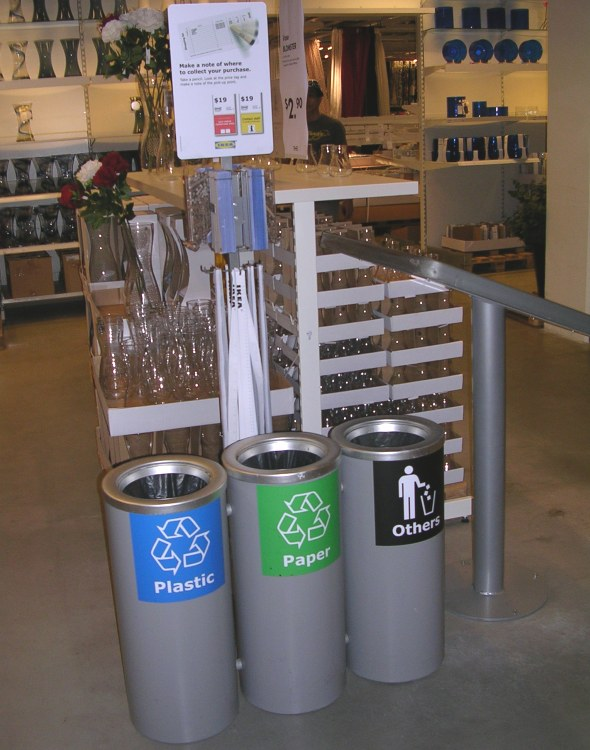Swedish flat-pack furniture specialist and homewares retailer IKEA is making strong progress towards its ambitious recycling and sustainability targets. In the year to August 2016, the retailer produced more than 560,000 tonnes of waste, of which over 88 per cent was either successfully recycled or incinerated for energy recovery.
Material recycling
In terms of recycling materials, IKEA has achieved rates of over 80 per cent across its business operations. It achieves the best rate of 81.7 per cent in distribution, 80.5 per cent in its furniture distribution business, and 80.3 per cent in its retail business.
By 2020, it aims to boost its performance further by recycling or energy recovering 90 per cent of the waste generated from the company’s operations. It is also looking at the issue of food waste produced from its in-store restaurants and aims to have 90 per cent either recycled or turned into products such as biogas or compost by the 2020 deadline.
To boost the efficiency of its recycling operations, the company employs baling machines to compress waste. Doing this makes waste easier to handle, it takes up less space to store, and it is cheaper to transport. Companies looking to take advantage of similar technology often turn to pallet racking from suppliers such as http://www.rackzone.ie/ for the interim storage of waste.

Waste management
All businesses and government organisations now face strict recycling targets. Meeting these, or exceeding them as in IKEA’s case, requires effective management procedures to stay in control of the process.
IKEA is planning to launch a new system to track its waste from 2018. This will be combined with improved training in waste management for its employees and an updated waste management handbook setting out the company’s objectives.
The company has put more than €3bn into its sustainability programme. This does not just cover dealing with waste, as IKEA is also committed to using sustainable materials. This involves investment in forestry, bio material development, and more. The company has also been investing in renewable energy by putting money into wind and solar projects.
It also wants to cut the amount of waste that it produces. Over 77 per cent of IKEA’s total waste comes from its retail stores, with the company aiming to trim this by 10 per cent between now and 2020.



